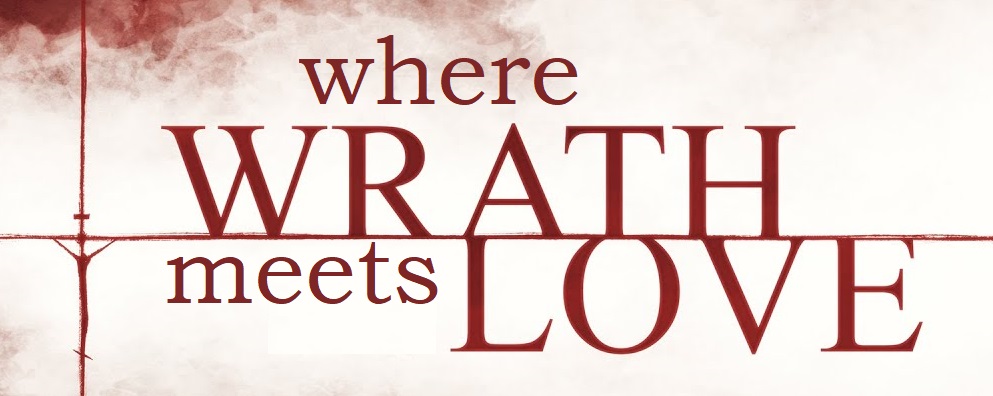OT or NT?
By Anthony Casperson
3-6-21
Today we’re gonna start with a little game. I’ll place 10 quotes from the bible before you and then you guess whether each has been taken from the Old Testament (OT) or the New Testament (NT). Though, I will mention that I’ve curated the quotes so that it’s not immediately recognizable which testament the quote is from. (For instance, some of the context of the verses attribute the statement to a specific individual, and thus I have carved the quote so that parts like that have been removed.)
I’ll give the answer to each quote in the paragraph after each one. So, if you want to play along, don’t look past the end of each quote before you take your guess. Also, after the answer to which testament it comes from, I’ll give a little context as well.
#1
“…he also will drink the wine of God’s wrath, poured full strength into the cup of his anger, and he will be tormented with fire and sulfur…”
Answer
NT
This is found in Rev. 14:10. Here, an angel proclaims what will happen to those who worship the antichrist and receive the mark of the beast. It’s a statement about judgement that will take place in the final days. While many judgements in the book of Revelation have seemed harsh, the intensity increases as it nears completion. And that fullness draws near by this point and time in the book.
#2
“I am in great distress. Let me fall into the hand of the Lord, for his mercy is very great, but do not let me fall into the hand of man.”
Answer
OT
You can find this in 1 Chron. 21:13. In the context, King David had sinned by preparing for a battle that God didn’t command. Judgement came, and the king prayed in repentance. God sent a prophet named Gad to offer a choice of which punishment David would endure for his sinful action: 3 years of famine, 3 months of enemy victories, or 3 days of pestilence. In King David’s continued repentance, he prayed the above words, knowing that his merciful God would render nothing more than deserved justice.
#3
“…everyone who is angry with his brother will be liable to judgment; whoever insults his brother will be liable to the council; and whoever says, ‘You fool!’ will be liable to the hell of fire.”
Answer
NT
These are actually the words of Jesus found in Matt. 5:22. Here, he teaches that unless a person’s righteousness supercedes even the Pharisees’ (those who held the perceived position of the most righteous in their culture), then they won’t be able to enter the kingdom of heaven. He gives the example of murder, saying that even if a person only holds hate in their heart, they are essentially murdering that object of hatred in their heart. Hatred holds the same judgment as murder because the first breeds the latter.
#4
“But because of your hard and impenitent heart you are storing up wrath for yourself on the day of wrath when God’s righteous judgment will be revealed.”
Answer
NT
Paul writes these words in Rom. 2:5. The Apostle had just said in the previous verse that God’s longsuffering kindness is meant to lead us to repentance from our rebellion against his ways. But many harden their heart, refusing to repent. Thus, storing up the wrath of God to be poured out in its entirety on the day of judgement. While repentance leads to forgiveness, refusing to repent will leave only a flood of righteous anger.
#5
“Gracious is the Lord, and righteous; our God is merciful.”
Answer
OT
This quote is from Ps. 116:5. The psalmist suffered at the hands of his enemies. Death seemed imminent, but he called out to God in the midst of it all. And these words begin his thankfulness for the deliverance. The salvation that the psalmist stood sure would come, as he writes in verse 10.
#6
“For there will be great distress upon the earth and wrath against this people. They will fall by the edge of the sword and be led captive among all nations, and Jerusalem will be trampled underfoot by the Gentiles…”
Answer
NT
Again, these words are spoken by the mouth of Jesus, according to Luke 21:23-24. Some people surrounding Jesus had been admiring the workmanship of the temple. But Jesus reveals that the day will come when the whole building will be torn apart. The people listening wrongfully assume that such an event would have to be the end of the world. And so Jesus speaks a multi-tiered prophecy about the day when the Jerusalem would eventually fall by the hands of the Romans, and how it compares to the day when final judgement will come upon the world.
#7
“Remember your mercy, O Lord, and your steadfast love, for they have been from of old. Remember not the sins of my youth or my transgressions; according to your steadfast love remember me, for the sake of your goodness, O Lord!”
Answer
OT
More words from David. This time from Ps. 25:6-7. David considers the teachings of God in this psalm. And he’s thankful that God mercifully still teaches him regardless of the sinful rebellion that he had performed previously in his life. Those who humbly bow to God’s teaching receive it with the amazing love of God.
#8
“…they will gather out of his kingdom all causes of sin and all law-breakers, and throw them into the fiery furnace. In that place there will be weeping and gnashing of teeth.”
Answer
NT
Matt. 13:41-42 contain these words from Jesus. The disciples came to Jesus, asking him to explain a parable. He explained the various parts, including those who would gather the weeds and throw them in the fire, which represents the angelic beings who gather those growing in the work of Satan. Those who broke the laws of God will be gathered in the last day when judgement finds its completion and they will be thrown into hell.
#9
“For he is good, for his steadfast love endures forever.”
Answer
OT
This quote is actually repeated in multiple places throughout the Old Testament. It’s found in 1 Chron. 16:34, 41; 2 Chron. 5:13; 7:3, 6; 20:21; Ezra 3:11; Ps. 106:1; 107:1; 118:1, 29; Jer. 33:11; and every verse of Ps. 136. History, poetry, and prophecy all proclaim the everlasting nature of God’s sure love. In Ps. 136, we see this in the response part of a “call and response” song. One part of the singers proclaims thankfulness for the amazing work of God, while the other part of the singers repeat the words quoted above.
#10
God is “merciful and gracious, slow to anger and abounding in steadfast love and faithfulness.”
Answer
OT
When God walks by Moses on Mt Sinai, revealing the faintest hint of his glory to the man, he speaks these words in Ex. 34:6. And they can also be found in this exact form in Ps. 86:15. Similar statements of God (though not in the exact same wording) are found in Num. 14:18; Ps. 103:8; 145:8; Joel 2:13; and Jonah 4:2. As a matter of fact, in the Jonah passage, he tells God that the whole reason why he didn’t want to prophesy to Nineveh was because he knew the above words were true of God, but the prophet didn’t believe the Ninevites were worth God’s grace.
So, how did you do on this little quiz game? You get them all right? Or just a couple? Did you eventually come to realize that all of the quotes about God’s love/mercy/faithfulness came from the Old Testament and all which spoke to wrath/judgment/hell came from the New Testament?
Yeah, I did that on purpose.
Recently, I’ve noticed an increase of discussion regarding the ideas of the wrathful “God of the Old Testament” and the loving “God of the New Testament” as if they were not the same God. Both those who claim to follow Jesus and those who don’t have said words similar to this heretical teaching.
God is both a God of perfect justice and a God of amazing love. Those two ideas are not contradictory. They actually make for an amazing God who holds a standard that doesn’t change based off of his whims, but also holds arms open wide to all who seek him.
It’s because of both of these aspects that we have the sacrificial cross of Jesus. God’s justice required the release of judgement, while his love demanded that he do all he could to save us from it.
Both the Old Testament and the New Testament show a God full of wrath for toward those who refuse his ways and full of love toward those who bow before him. It is the same God.
So, let’s stop spreading the lie that God is some angry old rule-keeper in the earlier writings of the bible and a blind-eyed hippie who endorses any life choice in the latter writings. Both caricatures are wrong.
The God of the bible is the same throughout. Loving, merciful, just, and wrathful. You find it all in both testaments.




